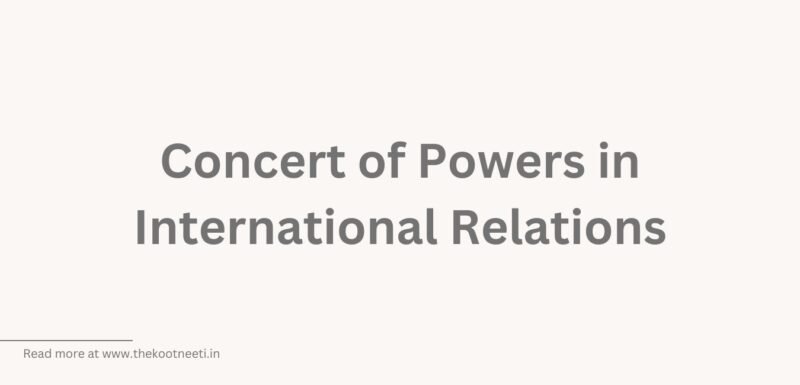Concert of Powers in International Relations

In international relations, the term “concert of powers” refers to a situation in which major powers work together to address common problems or challenges. The concept of a concert of powers is often used in the context of international security and diplomacy, and it suggests that the major powers can work cooperatively to address issues of mutual concern and to maintain global stability.
A concert of powers typically involves a group of major powers, such as the United States, China, Russia, and Europe, working together to address issues such as nuclear proliferation, international terrorism, and regional conflicts. In a concert of powers, the major powers may consult with one another and coordinate their actions, but they are not necessarily bound by a formal alliance or treaty.
The concept of a concert of powers is often contrasted with the idea of a balance of power, in which states seek to maintain a balance of power among themselves in order to prevent any one state from gaining too much dominance. While a concert of powers may involve elements of a balance of power, it also involves a greater degree of cooperation and coordination among the major powers.


















